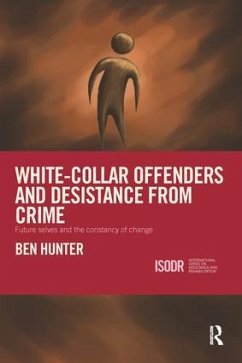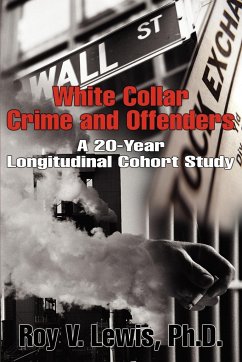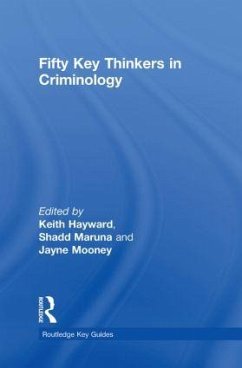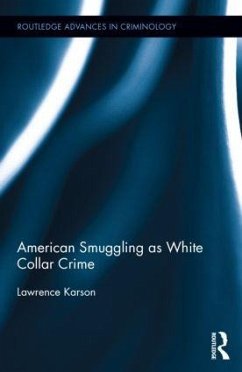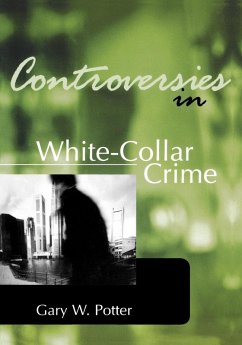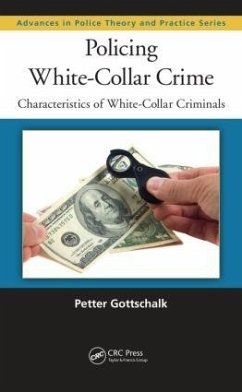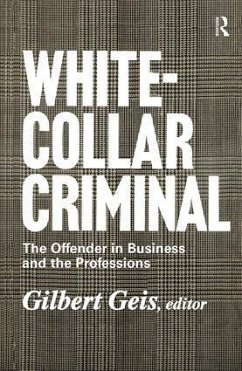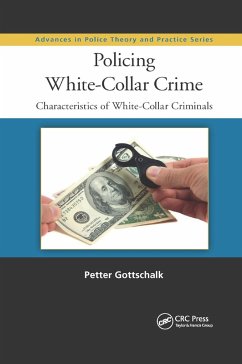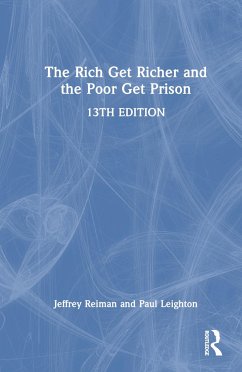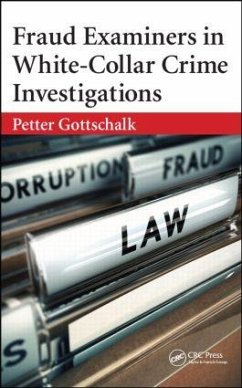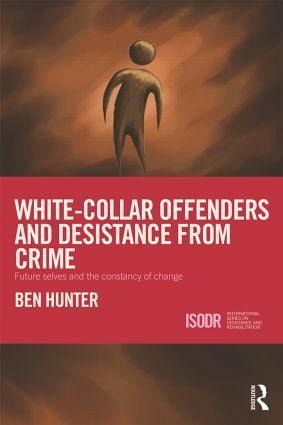
White-Collar Offenders and Desistance from Crime
Future selves and the constancy of change
Versandkostenfrei!
Versandfertig in 1-2 Wochen
177,99 €
inkl. MwSt.
Weitere Ausgaben:

PAYBACK Punkte
89 °P sammeln!
The MPs' expenses scandal in England and Wales and the international banking crisis have both brought into focus a concern about 'elite' individuals and their treatment by criminal justice systems. This interest intersects with a well-established concern within criminology for the transgressions of such offenders. However, up until now there has been little sustained consideration of what happens to such offenders following conviction and little discussion of how they attempt to avoid reoffending in the wake of their punishment. This study rectifies this omission by drawing upon white-collar o...
The MPs' expenses scandal in England and Wales and the international banking crisis have both brought into focus a concern about 'elite' individuals and their treatment by criminal justice systems. This interest intersects with a well-established concern within criminology for the transgressions of such offenders. However, up until now there has been little sustained consideration of what happens to such offenders following conviction and little discussion of how they attempt to avoid reoffending in the wake of their punishment. This study rectifies this omission by drawing upon white-collar offenders' own accounts of their punishment and their attempts to make new lives in the aftermath of it. Detailing the impact of imprisonment on white-collar offenders, their release from prison and efforts to be successful again, this book outlines the particular strategies white-collar offenders used to cope with the difficulties they encountered and also analyses the ways they tried to work out 'who they were' in the post-release worlds they found themselves in. Representing the first sustained qualitative study of white-collar offenders and desistance from crime, this book will be of interest to academics and students engaged in the study of white-collar crime, desistance from crime and prison. The insights it offers into a particular group of offenders' experience of criminal justice would also make it useful for criminal justice practitioners and anyone who wishes to understand the challenges faced by a group of offenders who are assumed to have many advantages when it comes to desisting from crime.





